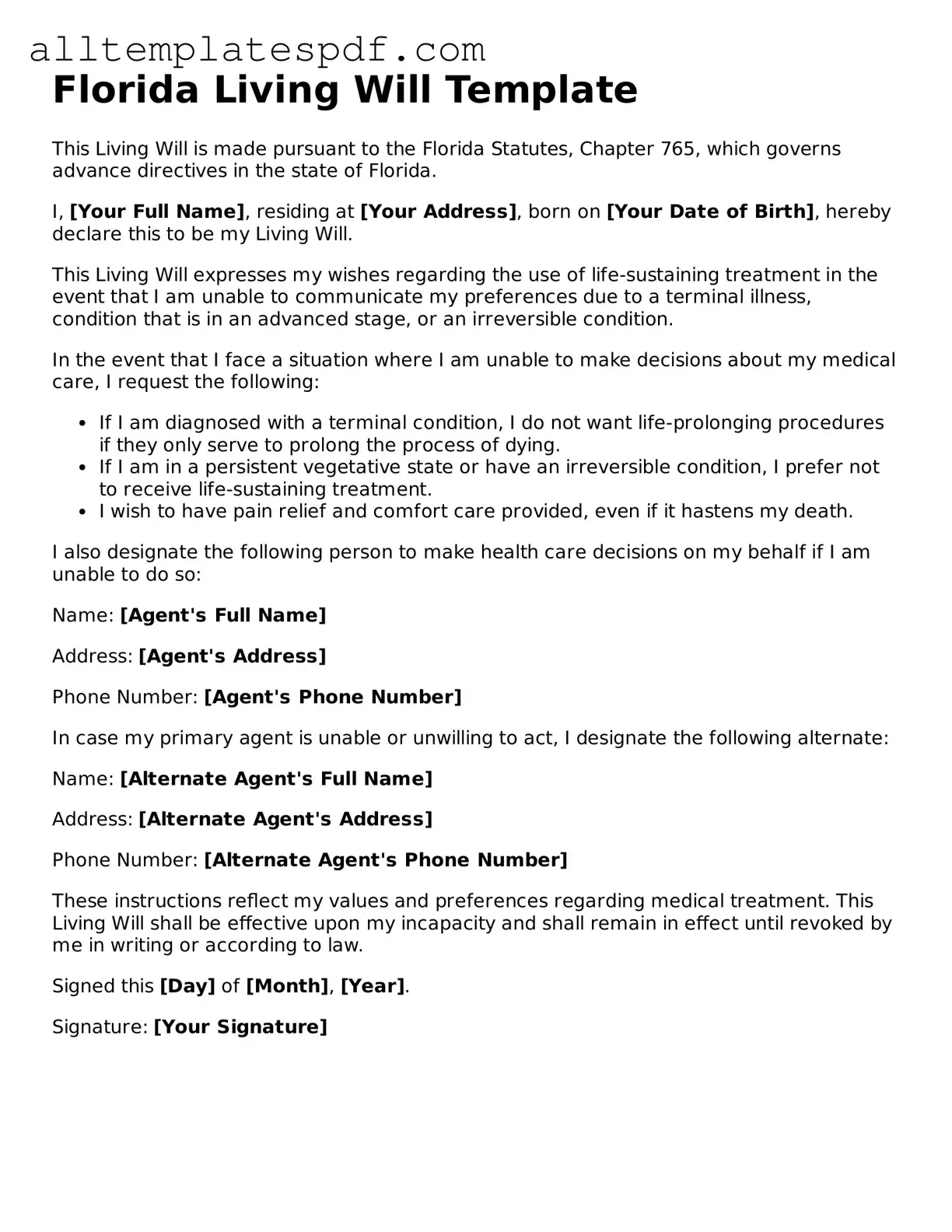Filling out a Florida Living Will form can be a straightforward process, but many individuals encounter pitfalls that can lead to confusion or even legal complications. One common mistake is not being specific enough about medical preferences. Simply stating a desire for life-sustaining treatment or its refusal without detailing specific scenarios can leave room for interpretation. This vagueness may result in healthcare providers making decisions that do not align with the individual's true wishes.
Another frequent error is failing to sign the document properly. In Florida, a Living Will must be signed in the presence of two witnesses or a notary. Neglecting to have the appropriate signatures can render the document invalid. Additionally, individuals sometimes overlook the requirement that witnesses cannot be family members or anyone who stands to benefit from the individual's estate. This oversight can lead to further complications.
People often forget to review their Living Will regularly. Life circumstances change, and so do personal preferences regarding medical treatment. Failing to update the document can result in outdated wishes being followed. It’s essential to revisit the Living Will periodically, especially after significant life events such as marriage, divorce, or the birth of a child.
Another mistake involves not discussing the Living Will with family members or healthcare proxies. Open conversations about one's wishes can prevent misunderstandings and conflicts during critical moments. When family members are unaware of the individual's preferences, they may struggle to make decisions that align with those wishes.
Some individuals mistakenly assume that a Living Will is the same as a durable power of attorney for healthcare. While both documents serve important roles in healthcare decisions, they are not interchangeable. A Living Will specifically outlines medical treatment preferences, whereas a durable power of attorney designates someone to make decisions on behalf of the individual. Understanding the distinction is crucial for effective planning.
Additionally, people often neglect to consider the implications of their choices. For example, refusing all forms of life support might seem straightforward, but it’s essential to understand the potential consequences of such a decision. Consulting with a healthcare professional can provide clarity and help individuals make informed choices.
Another common mistake is using outdated forms. Laws and regulations can change, and using an old version of the Living Will form may not reflect current legal standards. It’s important to ensure that the most recent version of the form is being used to avoid any legal issues.
Lastly, individuals may not realize the importance of storing the Living Will in an accessible location. Simply filling out the form is not enough; it should be kept in a place where it can be easily found by family members or healthcare providers when needed. Ensuring that trusted individuals know where to locate the document can make a significant difference during emergencies.

